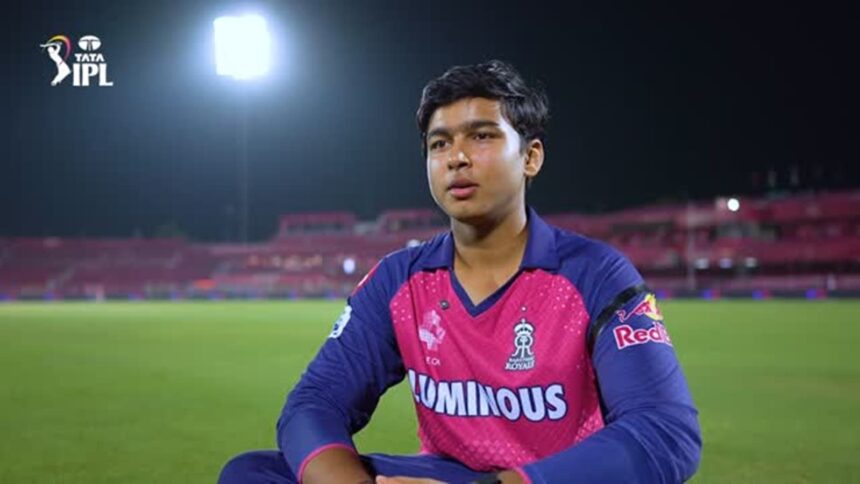When 14-year-old Vaibhav Suryavanshi walked off the field after scoring just 36 in a U-19 game, he couldn’t hold back the tears. Hunched over in the dressing room, overwhelmed by the feeling that he had let himself down, the young cricketer wept.
It was at that vulnerable moment that VVS Laxman stepped in. “We don’t only see the runs here,” he told the distraught teen gently. “We see people who have the skill for the long run.” For Vaibhav, it became a turning point.
Recently, that same boy stood tall on the biggest stage. Facing off against giants like Mohammad Siraj, , and , smashed his way to a record-breaking 101—not just becoming the youngest player to hit a T20 century, but also notching the second-fastest hundred after .
Laxman spotted him during the BCCI U-19 one-day Challenger tournament and recommended him to , the head coach of the .
Dravid, known for his patient mentorship, brought Vaibhav Suryavanshi into the Royals’ fold with deliberate care. “He is training really well and he looks like a really good and exciting talent,” Dravid shared in March. “but there are other equally good players as well and part of our responsibility is to groom him well, give him a little bit of time in the environment, let him get used to it.”
That moment arrived, and how.
Former India coach Ravi Shastri echoed the excitement—but with a touch of caution. “I think the first shot he ever played (against ), that would have taken everyone’s breath away,” Shastri said on The ICC Review. “But he’s young, just let him play. I would say just let him play a bit because it’s at that age, there’s bound to be failure as well. It’s how he handles failure, as people will come up with new things.”
According to counselling psychologist Srishti Vatsa, the way Vaibhav responds to early setbacks may be the key to his future. “Acknowledging your shortcomings because it puts you in a growth mindset and helps you manage emotions when facing setbacks,” she explained.
“If you’re aware of your limitations without judging yourself, you can focus on improvement rather than perfection. This self-awareness helps you reassess your skills and potential realistically,” she added.








